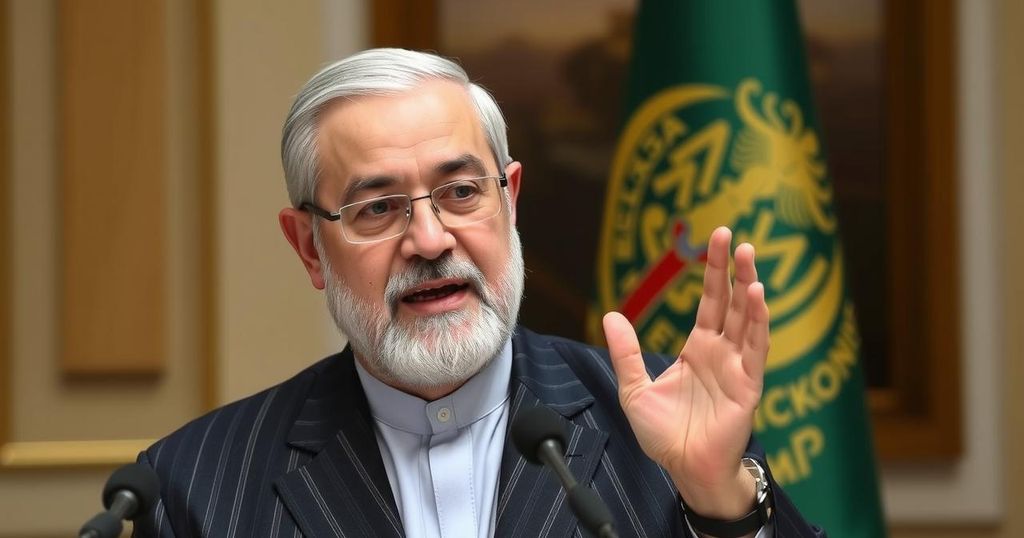Iran’s Foreign Minister Abbas Araghchi stated that European powers appear serious about resuming nuclear negotiations following discussions in Geneva. The talks with Britain, France, and Germany were deemed constructive and aimed at lifting sanctions and finding a diplomatic resolution. However, uncertainties remain regarding the intentions of the incoming U.S. administration under President-elect Trump.
On Tuesday, Iranian Foreign Minister Abbas Araghchi indicated that European powers appeared earnest in their efforts to revive nuclear negotiations following talks in Geneva. In a state television interview, he remarked, “The talks with the three European countries are aimed at exploring how we can return to the nuclear negotiations.” Araghchi characterized the discussions as “positive” and noted the participants’ determination to seek a negotiated resolution. However, he expressed uncertainty regarding the intentions of the incoming U.S. administration under President-elect Donald Trump.
Officials from Iran engaged in discussions with representatives from Britain, France, and Germany, collectively referred to as the E3. This round of dialogue, described as “frank and constructive,” was conducted shortly before the anticipated return of President Trump to the White House, a leader known for his stringent sanctions against Iran during his previous term. Iranian Deputy Foreign Minister Kazem Gharibabadi stated that the deliberations concentrated on issues such as the lifting of sanctions.
European Union diplomat Enrique Mora reported having a “constructive meeting” with Iranian officials that focused on finding a diplomatic resolution to the nuclear matter. These recent talks are the second set of negotiations in under two months, following a prior meeting in Geneva last November. In 2015, Iran and several world powers, including the E3 nations, reached an agreement that relaxed economic sanctions in exchange for restrictions on Iran’s nuclear activities. However, the United States withdrew from this accord in 2018 during Trump’s tenure, subsequently reinstating severe sanctions. Iran has since adjusted its compliance with the agreement, but continues to express a desire to revive the nuclear deal.
The nuclear negotiations involving Iran and European powers, notably Britain, France, and Germany, are a complex and evolving issue rooted in international diplomacy. In 2015, the Joint Comprehensive Plan of Action (JCPOA) was established to limit Iran’s nuclear capabilities in return for sanction relief. The U.S. withdrawal from the deal in 2018 under President Trump escalated tensions and led Iran to gradually roll back its compliance with the agreement. The recent discussions mark renewed attempts by European nations to mediate and seek a diplomatic solution to the ongoing nuclear dilemma, particularly in light of changing U.S. leadership.
In summary, the recent talks between Iran and the E3 nations suggest a renewed commitment to reviving nuclear negotiations, with both sides expressing optimism regarding constructive dialogue. As the political landscape shifts with the transition to a new U.S. administration, the potential for a renewed agreement hinges on willingness from all parties involved to engage in meaningful conversations aimed at resolving key outstanding issues. The developments in the coming weeks will be pivotal in determining the future of Iran’s nuclear program and international relations.
Original Source: www.barrons.com






